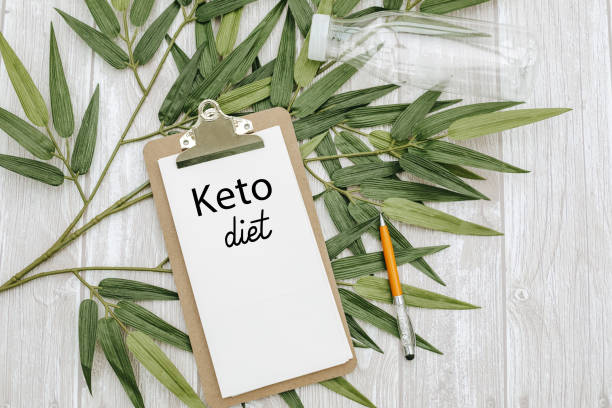Are you looking for an effective and science-backed way to achieve weight loss and improve your overall health? The Very Low Calorie Ketogenic Diet might be the solution you’ve been searching for.
In this article, we will dive deep into the world of the ketogenic diet, exploring its mechanisms, benefits, potential risks, and much more. So, let’s get started on this journey towards better health!

What is a Ketogenic Diet?
The Ketogenic Diet, frequently alluded to as the Keto Diet, is a low-sugar, high-fat eating plan that has acquired critical fame as of late.
The primary goal of this diet is to induce a state of ketosis in the body, where it relies on fat for fuel instead of carbohydrates.
This metabolic shift has a profound impact on weight loss and various aspects of health.
How Does the Ketogenic Diet Work?
At the heart of the Ketogenic Diet is the reduction of carbohydrate intake to an extremely low level.
By doing so, the body’s glucose levels decrease, and it starts producing ketones from fats in the liver.
These ketones become the primary source of energy for the body and the brain, leading to efficient fat burning and potential cognitive benefits.
The Science Behind Ketosis:
Ketosis, the cornerstone of the Ketogenic Diet, is a natural metabolic state where the body breaks down fats into ketones. These ketones are then used by cells for energy production. Studies suggest that ketones have neuroprotective properties and can enhance mental clarity and focus.
Benefits of the Ketogenic Diet:
The Ketogenic Diet offers a large number of advantages past weight reduction. The absolute most eminent benefits include:
👉Weight Loss: The diet’s carb restriction and fat-burning nature contribute to effective weight loss.
👉Blood Sugar Control: Keto may improve insulin sensitivity and help manage blood sugar levels.
👉Energy and Endurance: Many followers report increased energy levels and improved physical endurance.
👉Appetite Suppression: The diet’s high fat and protein content can lead to reduced appetite.
👉Epilepsy Treatment: Keto has been used as a therapeutic approach for drug-resistant epilepsy.
👉Heart Health: Some studies suggest that the diet could improve heart health markers.

“Unlock Your Body’s Potential: Experience the Power of the Ketogenic Diet and Thrive!”
Ketogenic Diet Pros and Cons:
Pros:
✅ Effective weight loss through ketosis.
✅ Potential for improved mental clarity.
✅ May reduce inflammation in the body.
✅ Offers flexibility in food choices.
Cons:
✅ Initial “Keto Flu” during adaptation.
✅Requires careful planning to maintain nutritional balance.
✅ Limited food options due to carb restriction.
✅ Potential for adverse effects on kidney function in some individuals.
How Ketosis Affects Weight Loss?
Ketosis plays a pivotal role in weight loss by turning the body into a fat-burning machine. When carbohydrates are scarce, the body burns stored fat for energy, leading to a reduction in body weight and fat mass.
Additionally, ketones may suppress appetite, contributing to a caloric deficit.
Potential Risks and Considerations:
While the Ketogenic Diet offers numerous benefits, there are also potential risks to be aware of. These include:
Nutrient Deficiencies: The restrictive nature of the diet can lead to deficiencies in vitamins and minerals.
Digestive Issues: Some individuals may experience constipation due to reduced fiber intake.
Ketoacidosis Risk: This is a concern primarily for people with diabetes, as very high ketone levels could be dangerous.
Adherence Challenges: The diet’s strictness can make it challenging to follow in the long term.
How to Benefit from the Very Low Calorie Ketogenic Diet?
To make the most of the Very Low Calorie Ketogenic Diet, consider the following tips:
Consult a Professional: Seek guidance from a healthcare provider before starting the diet.
Plan Meals: Plan your meals to ensure you’re getting the right nutrients.
Stay Hydrated: Drink plenty of water to avoid dehydration, a common side effect of ketosis.
Incorporate Exercise: Regular physical activity can complement the diet’s effects.
What food to eat on a keto diet?
Here’s a list of foods that you can enjoy on a ketogenic diet:
Fats and Oils:
– Avocado
– Olive oil
– Coconut oil
– Butter
– Ghee
– Lard
Proteins:
– Meat (such as beef, pork, lamb)
– Poultry (chicken, turkey, duck)
– Fish (salmon, tuna, sardines)
– Eggs
– Bacon
Low-Carb Vegetables:
– Leafy greens (spinach, kale, lettuce)
– Cruciferous vegetables (broccoli, cauliflower, Brussels sprouts)
– Zucchini
– Bell peppers
– Asparagus
Dairy:
– Cheese (cheddar, mozzarella, cream cheese)
– Greek yogurt (full-fat, unsweetened)
– Heavy cream
Nuts and Seeds:
– Almonds
– Walnuts
– Chia seeds
– Flaxseeds
Berries (in moderation):
– Strawberries
– Raspberries
– Blackberries
Sweeteners (use sparingly):
– Stevia
– Erythritol
– Monk fruit
Beverages:
– Water
– Herbal tea
– Coffee (with minimal additives)
– Unsweetened almond milk or coconut milk
Condiments and Flavorings:
– Salt and pepper
– Herbs and spices
– Vinegar (apple cider, balsamic)
– Mustard
– Hot sauce (actually take a look at marks for added sugars)
Other Foods:
– Dim chocolate (with a high cocoa content and insignificant sugar)
– Shirataki noodles (low-carb, high-fiber noodles)
Remember, the key to a successful ketogenic diet is to focus on foods that are high in healthy fats, moderate in protein, and very low in carbohydrates.
It’s also important to read labels and be mindful of hidden sugars and carb content in packaged foods.
Additionally, consulting with a healthcare professional or a registered dietitian before making significant dietary changes is always recommended.

“Transform Your Health: Embrace the Ketogenic Lifestyle Today!”
Keto diet advantages and disadvantages:
Here’s an overview of the advantages and disadvantages of the ketogenic diet:
Advantages of the Ketogenic Diet:
1. Effective Weight Loss: The ketogenic diet is known for its ability to promote significant weight loss. By inducing ketosis, the body burns stored fat for fuel, leading to rapid fat loss.
2. Improved Blood Sugar Control: The diet can help stabilize blood sugar levels and enhance insulin sensitivity, making it beneficial for individuals with type 2 diabetes or insulin resistance.
3. Increased Energy Levels: Many people report improved energy and mental clarity while on the ketogenic diet. Ketones serve as a steady and efficient energy source for the brain.
4. Appetite Suppression: The high-fat and moderate-protein content of the diet can help curb appetite, making it easier for some individuals to control their calorie intake.
5. Potential Cognitive Benefits: Ketones have been shown to have neuroprotective effects, potentially benefiting brain health and reducing the risk of neurodegenerative diseases.
6. Reduction in Inflammation: Some studies suggest that the ketogenic diet may reduce markers of inflammation in the body, which is linked to various chronic diseases.
7. Epilepsy Treatment: The ketogenic diet was initially developed as a treatment for epilepsy, particularly in cases where traditional medications are ineffective.
Disadvantages of the Ketogenic Diet:
1. Keto Flu: During the initial phase of adapting to ketosis, some individuals experience the “keto flu,” which includes symptoms like fatigue, headache, nausea, and irritability.
2. Nutrient Deficiencies: The restrictive nature of the diet can lead to deficiencies in essential nutrients like vitamins, minerals, and fiber. Proper supplementation and careful meal planning are necessary.
3. Digestive Issues: The low-carb nature of the diet may lead to constipation for some individuals due to reduced fiber intake from fruits and whole grains.
Success Stories and Reviews:
Many individuals have achieved remarkable results with the Very Low Calorie Ketogenic Diet. These success stories highlight significant weight loss, improved energy levels, and enhanced overall well-being.
The fact that individual outcomes can fluctuate makes in any case, it memorable vital.
Conclusion:
The Very Low Calorie Ketogenic Diet offers a promising approach to weight loss and health improvement.
By understanding the science behind ketosis and the potential benefits, you can make an informed decision about whether this diet aligns with your goals.
Remember, consulting a healthcare professional before making dietary changes is crucial.
Frequently Asked Questions?
1. Is the Ketogenic Diet suitable for everyone?
The diet may not be suitable for individuals with certain medical conditions. Consult your doctor before starting.
Q2. What is the “Keto Flu”?
The “Keto Flu” refers to flu-like symptoms some people experience during the initial phase of the diet’s adaptation.
Q3. Can I exercise while on the Ketogenic Diet?
Yes, incorporating regular exercise can enhance the diet’s effects on weight loss and overall health.
Q4. Are there long-term studies on the diet’s safety?
While short-term studies show promising results, more research is needed on the long-term safety of the diet.
Q5. How quickly can I expect to see results?
Results vary, but many people notice initial changes within the first few weeks of following the diet.
Alpilean Supplement Review-Legit Ingredients, Price & Benefits
Disclaimer:
We are a professional product review website. We might receive compensation when you buy through our website. We may earn a small commission. The information contained on this website is provided for informational purposes only and is not meant to substitute for the advice provided by your doctor or other healthcare professional. The products have not been evaluated by the Food and Drug Administration and are not intended to diagnose, treat, cure, or prevent any disease.
